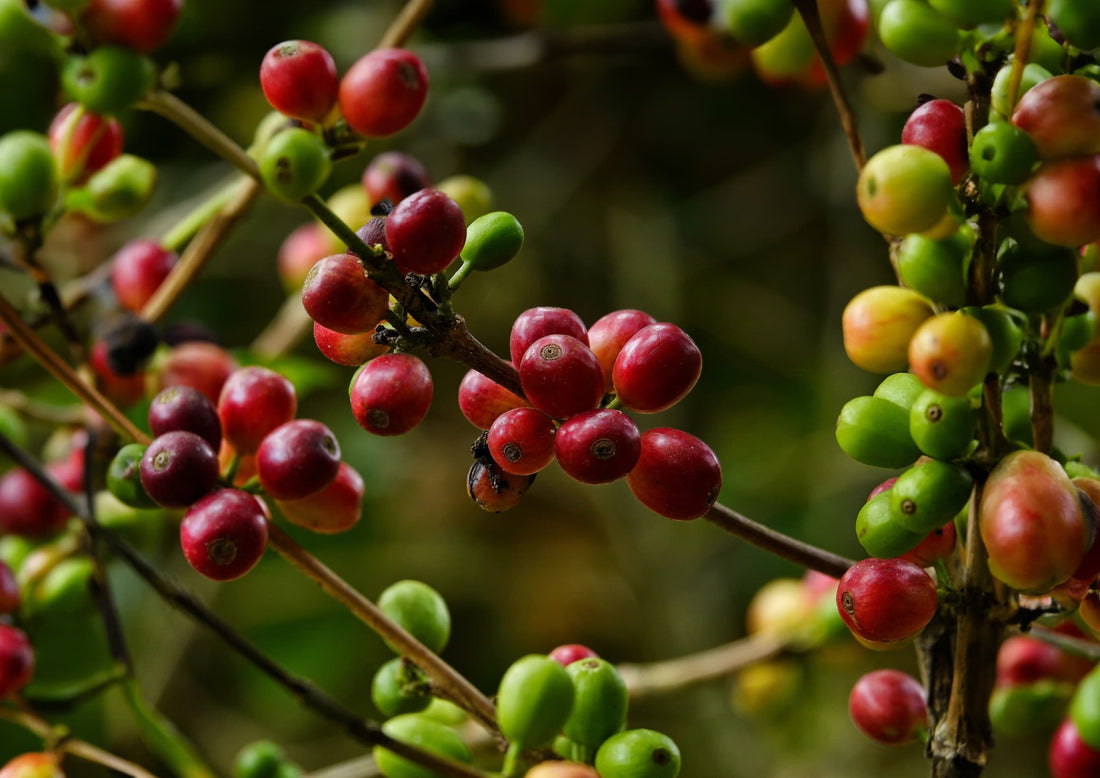Reading material
Coffee bean varieties

Coffee is a beverage loved all over the world, but its taste varies greatly depending on the variety of coffee beans. Even the same coffee can have different flavors, aromas, and balances of acidity and bitterness, which greatly influence the drinker's preferences. The taste also changes depending on the region and environment in which it is grown, making the world of coffee an incredibly complex and complex subject.
In this article, we'll take a closer look at the main varieties of coffee beans and introduce their respective characteristics, hoping to help you find the coffee that best suits your taste.
What are coffee bean varieties?
The variety of coffee beans has a significant impact on flavor, aroma, ease of cultivation, etc. Generally, coffee bean varieties are broadly divided into the following three types:
- Arabica (Coffea Arabica)
- Robusta (Coffea Canephora) (also known as Canephora species)
- Liberica species (Coffea Liberica)
These coffee beans are called the three main original species, and many varieties have been created from these three through mutation and selective breeding, and today many different varieties of coffee are grown all over the world.
Arabica
Features
- Native to Ethiopia, it accounts for approximately 70-80% of the world's coffee production
- Characterized by a rich aroma and flavor
- Acidic and balanced taste
- It is difficult to cultivate as it is susceptible to pests and diseases and climate changes.
The main Arabica varieties
Typica
- A variety close to the original Arabica
- Excellent aroma and acidity, clean taste
- Susceptible to rust and low productivity
Bourbon
- A mutation of Typica, characterized by its sweetness and richness
- It originated from being transplanted from Yemen to Bourbon Island (now Reunion Island).
Geisha
- A premium variety characterized by a floral aroma and vibrant acidity
- Geisha from Panama is especially famous and trades at high prices.
Mundo Novo
- A natural cross between Bourbon and Sumatra
- It is widely cultivated in Brazil because it is resistant to pests and diseases and highly productive.
Caturra
- A mutation of Bourbon, it is small but highly productive and resistant to rust.
- It is widely cultivated in Colombia and Brazil.
Catuai
- A hybrid of Mundo Novo and Caturra
- Highly productive and pest-resistant
Blue Mountain
- A premium variety grown in Jamaica
- Characterized by a mellow and well-balanced flavor
Pacamara
- A hybrid of Percus and Maragogype
- The beans are large and have a complex, rich flavor.
Robusta
Features
- Native to the Congo in Africa
- Resistant to pests and diseases and climate change, it can be grown in lowlands
- It has a high caffeine content, a strong bitter taste and a unique aroma.
- Mainly used for instant coffee and canned coffee
The main Robusta varieties
Robusta
- Representative varieties of the Canephora species
- It has a strong bitterness and rich flavor, and is used for espresso and blends.
Conilon
- A type of Robusta grown in Brazil
- It has a relatively mellow flavor and is suitable for blending.
Liberica species
Features
- Native to Liberia, West Africa
- The production volume is less than 1% of the total, and it is rarely available on the market.
- It produces large fruits, but has a strong, bitter and unique flavor.
summary
There are a wide variety of coffee varieties, each with its own distinctive flavor and growing conditions. Arabica is particularly popular for its good flavor, and many varieties are cultivated around the world. On the other hand, Robusta is resistant to pests and diseases and has high productivity, so it is widely used for instant coffee and other purposes. Liberica is a rare variety, but in some regions it has attracted attention as a coffee with a unique flavor.
One of the joys of coffee is learning about the characteristics of different varieties and trying different coffees to find one that suits your taste.